
Covid Restrictions in France What's Still in Place and what's Changed
Buy Now

Why France is Seeing an increase in COVID-19 Cases Free Treatment
Buy Now
Why France is Seeing an increase in COVID-19 Cases Free Treatment
what The Government is Doing To Combat The Spread
How People Are Reacting
What This Means For The Future

The Amazing Health Benefits of Pomegranate Skin
Buy Now
The Amazing Health Benefits of Pomegranate Skin
Pomegranate Skin Can Help Improve Gut Health
Pomegranate Skin Can Help Reduce Inflammation
Pomegranate Skin Can Help Boost Immune System

Doctors Urge Masking This Holiday Season to Prevent the Spread of COVID-19
Buy Now
Doctors Urge Masking This Holiday Season to Prevent the Spread of COVID-19
Masks Protect You and Those Around You
There are Different Types of Masks
How To Wear a Mask Properly
Tips For Making Your own Mask

Is Your Daily Probiotic Doing Enough For Your Bone Health
Buy Now
Is Your Daily Probiotic Doing Enough For Your Bone Health
The Benefits of Probiotics
The best probiotics For Osteoporosis
How To Take a Probiotic
Are There Any Side Effects

Why You Shouldn't Ignore Non Small Cell Lung Cancer
Buy Now
Why You Shouldn't Ignore Non Small Cell Lung Cancer
Smoking is one of the leading causes of cancer in both men and women. A study published by the CDC found that 22% of all cancer deaths in the U.S. are attributable to smoking. The study also found that smoking is responsible for at least 30% of all cancer deaths in both sexes combined, with rates being higher for males than females. In addition to lung cancer, smoking has also been linked to an increased risk for cancers of the larynx, throat, mouth, and esophagus as well as a number of other conditions including emphysema and cardiovascular disease.
The Symptoms of NSCLC
The symptoms of non small cell lung cancer can vary from person to person. It is important to know the symptoms because they could indicate a problem. The most common symptom is a cough that has lasted for more than three weeks, according to the American Cancer Society. Other symptoms can include chest pain or discomfort, shortness of breath, hoarseness or wheezing, coughing up blood or rust-colored sputum, and weight loss.
The Importance of Early Detection
Non-small cell lung cancer (NSCLC) is the most common type of lung cancer in the United States. This type of cancer is more common in men, but it does occur in women as well. It usually starts from cells that line the airways or those found near or around the nerves, and can spread to other parts of the body. NSCLC may be slow growing, so people with this type of lung cancer may not have symptoms for a long time. The first signs of non small cell lung cancer are often shortness of breath and coughing up blood. Other symptoms include weight loss, chest pain and bone pain caused by bone metastases.
The Treatment Options for NSCLC
NSCLC is the most common form of lung cancer, accounting for about 85 percent of all cases. Treatment options for NSCLC can vary, depending on factors such as the size and location of the tumor and whether it has spread to other parts of the body. In some cases, surgery may be a treatment option; in others, chemotherapy or radiation therapy may be appropriate.
The Support Available for Patients
Non-small cell lung cancer, or NSCLC, is the most common form of lung cancer and it's often diagnosed at a late stage. The reason for this is that symptoms don't appear until there are larger lesions in the lungs. Early detection is essential to treatment success rates, so it's important to know the signs and symptoms of NSCLC. If you experience any of these symptoms, see your doctor as soon as possible.

Why you must grasp the symptoms of monkey pox in kids
Buy Now
Why you must grasp the symptoms of monkey pox in kids
Monkey pox may be a rare however serious ill health that may cause fever, headache, and a efflorescence. it's caused by an endemic referred to as monkey pox. The virus spreads from one person to a different through contact with blood, saliva, or different body fluids of Associate in Nursing infected person.
The period of time for monkey pox is regarding twelve days
Monkey pox is Associate in Nursing infection caused by an endemic that sometimes results from contact with infected animals or individuals. it's additionally potential to contract it through exposure to things, like garments, contaminated with the virus. The period of time for monkey pox is regarding twelve days, and the general public improve among a couple of weeks while not treatment. Symptoms embrace fever, skin rash, swollen bodily fluid nodes, raw throat (but not always), headache, muscle aches and swollen glands.
The first signs of monkey pox square measure fever and fatigue
The first sign of infection with monkey pox is typically fever and fatigue. The fever could also be inferior or best, however it has always around 100°F. the general public World Health Organization get infected with monkey pox feel tired or run down for a couple of days before they show the other signs of the illness. Some individuals, however, haven't any warning that they are sick before obtaining a rash. The rash seems on day three to five once exposure and starts as flat red spots on the face, trunk and limbs that later become raised bumps with black centres like little pox.
Other symptoms embrace headache, muscle aches backache swollen bodily fluid nodes
In addition to fever and rash, different warning signs embrace headache, muscle aches, backache, swollen bodily fluid nodes. The virus is transmitted by touching or respiratory droplets from Associate in Nursing infected person's coughs or sneezes.
A rash may additionally develop, typically beginning on the face and spreading to different elements of the body
One of the foremost common and visual signs of a baby with monkey pox may be a rash that develops on their face, neck, chest and arms. The rash also can occur on different elements of their body, like beneath their nails or on their hands or feet.
The rash generally turns into blisters or pustules
Monkey pox may be a rare illness that's caused by an endemic. The rash generally starts with little bumps or lumps that transform blisters or pustules. It also can cause fever, headache, muscle pain and severe itchiness.
Monkey pox is most typically unfold through contact with the infected bodily fluids of Associate in Nursing animal or person
Monkey pox may be a rare illness that causes blister-like rashes to make on a human skin. it's caused by contact with infected animals or individuals. Monkey pox is most typically unfold through contact with the infected bodily fluids of Associate in Nursing animal or person. The virus also can be unfold through direct contact with objects contaminated with infected materials, like garments, bedding and piece of furniture.
A person typically starts to indicate signs of monkey pox among fortnight once they're exposed to the virus, however these signs will take up to a few weeks before they come into view. Usually, it takes one week for a human fever to travel away utterly and another week for any skin rashes from the ill health to disappear utterly.
There is no specific treatment for monkey pox, however hospitalization could also be necessary to stop complications
Monkey pox may be a rare infection that may be unfold from animals to individuals. It's additional common among individuals living in or close to rain forests wherever it's typically transmitted by handling Associate in Nursing infected animal. However, it also can unfold from person to person and has been rumored as far-off as Europe.
The virus is found within the blood, saliva, urine, and different bodily fluids of infected animals or humans. Transmission happens either once somebody comes into contact with these fluids Associate in Nursingd mucous secretion membranes or inhales droplets that square measure free into the air once an animal sneezes or coughs.
Some folks that become infected might haven't any symptoms in the slightest degree whereas others might have a high fever and severe headaches.
Recovery from monkey pox typically takes 2-4 weeks
Monkey pox may be a rare infectious agent illness that's transmitted from animals to humans by mosquitoes. It also can be passed from person-to-person through bodily fluids. The virus causes Associate in Nursing ill health characterised by fever, headache, and efflorescence. Recovery from monkey pox typically takes 2-4 weeks. there's no specific treatment for this illness therefore care suppliers will give confirming care to patients with fever or people who have a coffee level of antibodies against the virus.

The Lowdown on carcinoma Stage four Survival Rates
Buy Now
The Lowdown on carcinoma Stage four Survival Rates
Breast cancer is assessed by stages. Your doctor can provide you with a carcinoma stage between I and IV. the upper the amount, the a lot of advanced the sickness is. The stage of willcer carcinoma} can have an effect on treatment choices and prognosis (chance of recovery). Stages vary from I to IV:
Stage zero is once abnormal cells area unit found solely within the lining of milk ducts or lobules.
Stage I happens once abnormal cells have mature outside of a milk duct or lobe and invaded another tissue.
Stage II is once cancerous cells have mature into hum our nodes close to the breast, however not all of them area unit affected. this could even be known as inflammatory carcinoma as a result of inflammation could also be found in close tissues.
What area unit the symptoms of stage four breast cancer
Symptoms of carcinoma at stage four are often a similar as those in earlier stages. However, they're a lot of probably to be caused by the cancer's unfold to alternative organs. These symptoms include:
- Pain, swelling or a lump in any a part of the body
- harshness or bother swallowing
- Unexplained weight loss or loss of appetence
- Bone pain that does not get away with rest
- Night sweats Associate in Nursingd or fever not caused by an infection
What area unit the treatment choices for stage four breast cancer
Stage four carcinoma treatment is sometimes a mix of therapy, actino therapy and surgery. the sort of treatment can rely on wherever the cancer is found within the body. actino therapy are often given to any a part of the body however it's most frequently used for cancers within the breasts, head and neck. therapy are often given through Associate in Nursing IV or taken orally. Surgery could also be necessary to get rid of all or a part of the growth and a few close tissue if there's any close hum our nodes or organs laid low with cancer cells. to create positive that you simply are becoming enough nutrients throughout treatment, your doctor could suggest that you simply take high doses of metal and aliment D3 supplements and eat foods made in pteroylmonoglutamic acid like bifoli ate inexperienced vegetables, broccoli, tomatoes, citrus fruits and beans.
What area unit the facet effects of treatment
It's important to recollect that the facet effects of carcinoma treatment rely on several factors, together with the sort of treatment you're receiving. therapy treatments, for instance, could cause hair loss, nausea and reflex, and symptom. actinotherapy will result in fatigue and skin irritation. There also are secretion therapies that have associated facet effects like joint pain or Associate in Nursing inflated risk for heart condition. you will additionally expertise emotional challenges like anxiety or depression throughout your recovery method. generally these symptoms area unit short-term; alternative times they last for much longer. it is important to debate potential facet effects along with your doctor before starting treatment therefore you recognize what to expect once the very fact.

How to Check for Sex Gland Cancer
Buy Now
Know the Symptoms
The symptoms of sex gland cancer will be imprecise and exhausting to acknowledge, however there ar some signs that you just ought to be careful for. the foremost common symptom is pain, either girdle or abdominal. alternative symptoms embody discharge changes like trauma quite usual or not having a amount in the least. you may conjointly expertise bloating and swelling, unexplained weight gain or loss, feeling full quickly, issue intake bound foods, constipation or diarrhoea. These might be caused by alternative things besides cancer therefore it is vital to envision your doctor if these symptoms persist.
#1 build a briefing together with your specialist
#2 Request associate degree ultrasound check
#3 Request a biopsy
Get a girdle test
A girdle test may be a physical examination of the feminine girdle organs. girls ought to get one once a year as a part of their annual medical specialty exams. A girdle test sometimes includes:
-Pelvic test -Bimanual test (examining each the female internal reproductive organ and also the ovaries) -Rectal test (examining the rectum) -Cervical cancer screening (smear test)
Get a trans vaginal ultrasound
A transvaginal ultrasound is that the best thanks to check for sex gland cancer. This check will be drained a doctor's workplace and takes regarding quarter-hour. The check helps your doctor see the structures in your pelvis, as well as the ovaries, uterus, cervix, and fallopian tubes. It works by causation sound waves through your abdomen into your girdle organs. Your doctor are going to be ready to see if there ar any signs of a neoplasm on the ovaries or alternative suspicious areas. If you are not pregnant, you'll have to possess associate degree empty bladder before the check begins associate degreed it's suggested that you just drink lots of fluids beforehand so you do not have an accident once lying on your back throughout the exam!
Consider the CA-125 biopsy
The CA-125 biopsy may be a screening tool utilized in the identification of sex gland cancer. it's conjointly wont to monitor response to treatment, stage malady return, and determine potential unfold of malady.
The CA-125 biopsy measures the extent of a macromolecule known as CA-125 within the blood. CA-125 levels ar typically elevated once there's associate degree imbalance of steroid hormone and Lipo-Lutin, that ar hormones that regulate traditional cell growth. the upper your level of CA-125, the additional doubtless it's that you just might have sex gland cancer.
The biopsy has been shown to be handiest in folks with high risk factors for sex gland cancer like a case history or bound genetic mutations.
Be aware of the risks factors
The yankee Cancer Society states that the subsequent risk factors ar related to sex gland cancer:
Age - A woman's risk of developing sex gland cancer will increase as she gets older.
case history - Having a first-degree relative (mother, sister, or daughter) with sex gland cancer greatly will increase a woman's possibilities of developing the malady.
fruitful history - girls UN agency haven't borne kids appear to be at lower risk than girls UN agency have borne one or additional kids.
secretion medical aid - whether or not steroid hormone alone or together with alternative hormones, secretion medical aid might increase a woman's probability of developing this malady.






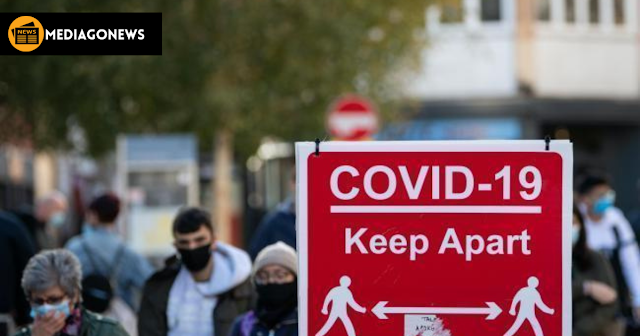

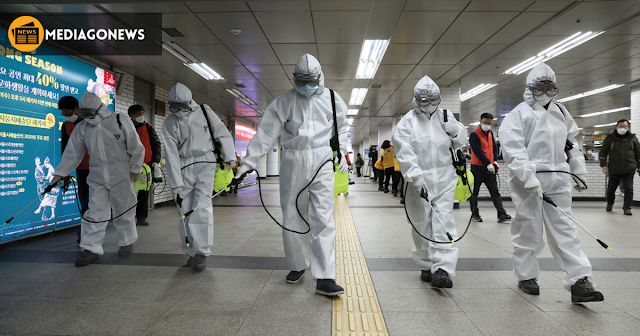







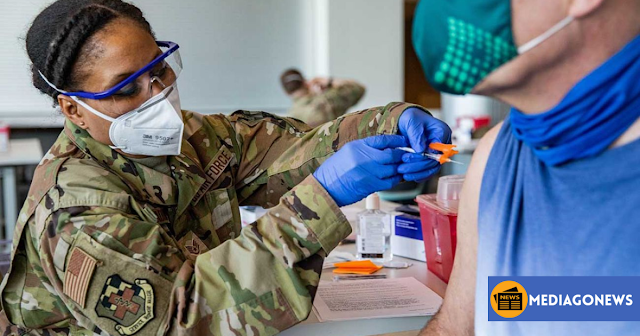

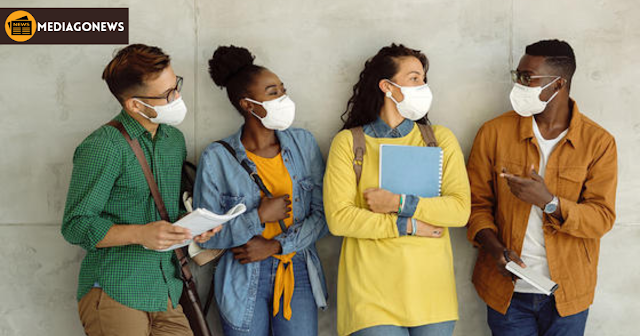
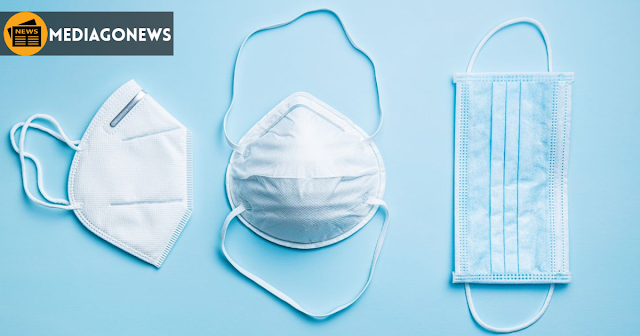
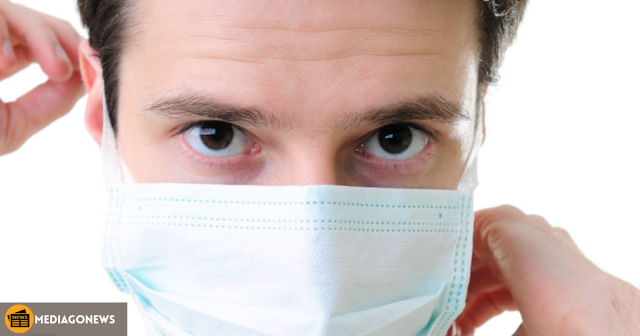

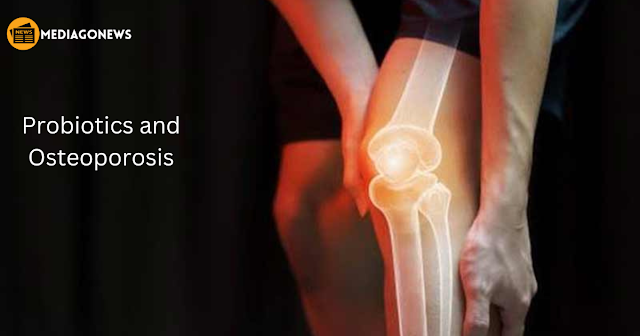




.png)

.png)

.png)

.png)